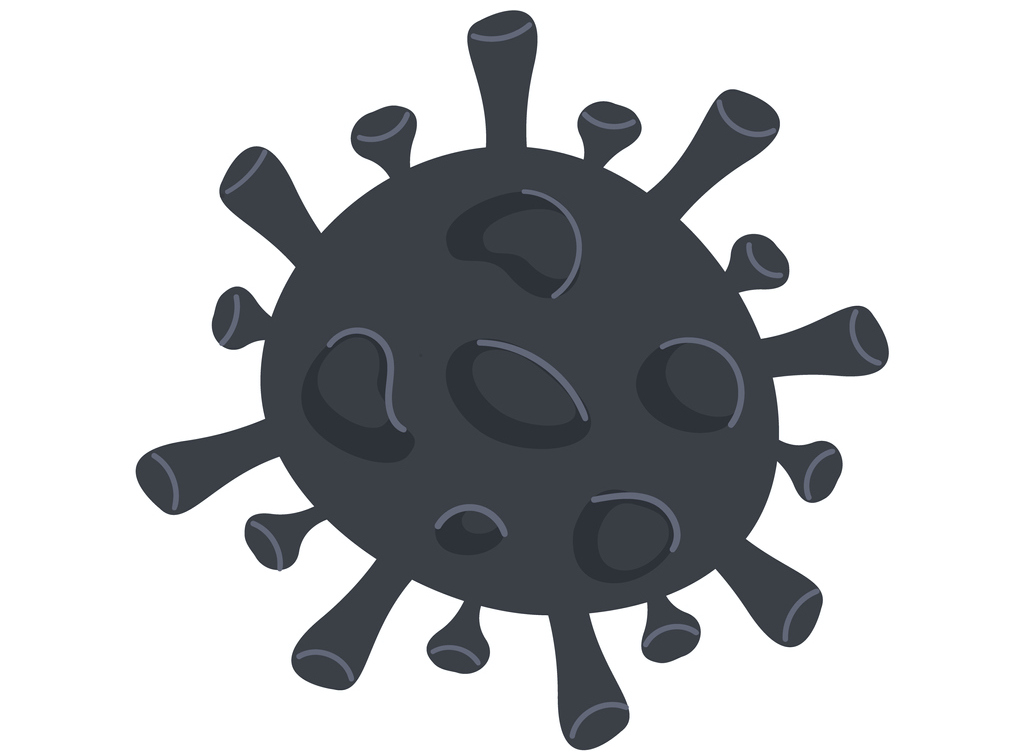What is antifungal medication?
Antifungal medication helps treat infections caused by fungi. A fungus is a type of germ that grows as a yeast or a mould. It has many forms: for example, it can be so small you can’t see it floating in the air or it can be as big as a mushroom growing in the soil.
Usually, fungi don’t harm us, but sometimes they grow in the wrong places and cause infections on our skin or when we breathe them into our lungs. They may grow in moist areas on your body like between your toes, around your genitals and under your breasts. Fungal infections usually affect your skin, hair and nails.
Antifungal creams and other antifungal medicines, like shampoos, tablets or injections, work by either killing the fungus that’s causing the infection or by making sure it stops growing.
Which infections does antifungal medication treat?
The fungal infections that are most commonly treated with antifungals include:
- athlete's foot
- ringworm
- fungal nail infections
- vaginal thrush (candidiasis)
- thrush of the mouth and throat (oral thrush)
- some types of very bad dandruff
Antifungal medicine can be used to treat people who are sick in hospital with serious fungal infections that grow inside the body, such as fungal meningitis and aspergillosis.
Antifungal creams and other types of antifungals
Antifungal medications come in different forms such as:
- topical antifungals – creams, gels, ointments, sprays or shampoos that you put on your skin
- oral antifungals – capsules, tablets or liquids that you swallow
- antifungal pessaries – small, soft tablets that you put inside your vagina
- intravenous (IV) antifungals – injections into your arm
Names of some of the most common antifungal medicines include amphotericin, clotrimazole, fluconazole, econazole, ketoconazole, miconazole, nystatin and terbinafine. Speak to a pharmacist or doctor for advice on how to get and use these medicines safely.
When will you use topical antifungals and oral antifungals?
Usually, you’ll need to use topical antifungals, which you put directly onto your skin as creams, ointments, sprays and shampoos. The most commonly used of these medicines are clotrimazole, miconazole and econazole. Topical antifungals work well for skin fungal infections like ringworm.
But topical medicines don’t work as well when it comes to some fungal infections like ones on your nails. You may need to take a stronger oral antifungal instead – this means you may take a medicine like terbinafine in tablet form. You may need to swallow oral antifungals too if you have a large rash on your skin or scalp.
Sometimes you may try antifungal creams or ointments first to help with a skin infection like fungal acne, or an infection of the penis called balanitis, but if that doesn’t work, a doctor may recommend stronger antifungal tablets.
How long will you need to use antifungals for?
The treatment of fungal infections with antifungals is usually straightforward – and they don’t always need to be treated as they often don’t cause any serious symptoms or make you feel unwell. If you do need treatment, the length of treatment will depend on the kind of infection you have, how bad it is and if you have other health problems, for example, if your immune system isn’t working well.
Some fungal skin infections can last a long time. You may also spread the infection to other people, or the infection may spread to other parts of your body and could even lead to a bacterial infection.
You can treat skin fungal infections at home with antifungals – ask a pharmacist for advice on how to use them. But if the infection gets worse and the medication isn’t working, see a doctor.
Sometimes you only need to use antifungals for a few days, like when treating vaginal thrush, or you may need to use them for much longer when treating ringworm on your scalp. This is why it’s important to follow the instructions that come with your antifungal medicine or what a pharmacist or doctor tells you. For example, you could be instructed to use the antifungal for about 2 weeks after your symptoms go away.
When fungal infections take longer to treat
Some fungal infections take much longer to treat: nail infections can sometimes take up to 1 year or longer to treat properly. And sometimes you’ll think the infection has gone, but the symptoms return.
Toenail infections can be difficult to treat with topical antifungals – and oral antifungals used for toenail infections can have rare but serious side effects. This is why you don’t always need to treat toenail infections if the infection isn’t causing any symptoms and making it difficult to walk, for example, or you’re not worried about how the infection has affected the appearance of your nail.
Athlete’s foot often comes back. To make sure it doesn’t return, a doctor may change your treatment or advise you to use topical and oral antifungal drugs at the same time.
What can you do for yourself when using antifungals?
Practise good hygiene when taking antifungals – and after taking them to make sure the infection doesn’t come back. Try these self-care tips:
- wash the infected areas daily
- dry your skin thoroughly after you wash, especially in the folds of your skin
- wear loose-fitting clothes made of cotton or another material that keeps moisture away from your skin
- keep your feet dry and nails short if you have a toenail infection, and wear breathable shoes that fit well and clean cotton socks every day
- wash your clothes, bed linen and towels often to get rid of any fungi, as you can spread some types of fungal infections, like athlete’s foot, to other people
- don’t walk barefoot in public areas, like gyms, showers, saunas or swimming pools
- if someone you live with has scalp ringworm, use bleach and water to soak pillows, hats, hairbrushes and combs – and don’t share these items
Read more about how to prevent a fungal nail infection and make sure it doesn’t return.
The safety and side effects of antifungal medicines
Before using any antifungal medicine, speak to a pharmacist or doctor about the following:
- any other medications you’re using because they may cause problems when used with antifungals
- if you have any medical conditions or allergies
- if antifungals can be used if you’re pregnant or breastfeeding (many can’t)
- the possible side effects of the antifungal medication
Antifungals usually don’t cause side effects, but if they do, they tend to be mild and short-lived. These side effects may include:
- itching or burning
- redness
- a rash
- feeling sick (nausea)
- being sick (vomiting)
- tummy pain
- diarrhoea
- headaches
You can check the information leaflet that comes with your medication if you’d like a full list of possible side effects and cautions. Sometimes, but not often, oral antifungal medications can cause serious side effects, usually when they’re used for a long time. Oral antifungals used for nail infections, for example, can lead to rare but serious side effects, such as liver damage, which is why a doctor may do a blood test before you start taking this medicine and a few weeks after you start taking it to monitor its effects. Each antifungal has its own side effects, so discuss these with a doctor before starting the medicine.
When to see a doctor about antifungal medicine
If you’ve tried antifungal medication that a pharmacist has advised you to use but it’s not working, or your infection gets worse or won’t go away, see a doctor.
See a doctor or go to hospital immediately if you have:
- an allergic reaction (anaphylaxis) – your face, neck or tongue swell, your heart is beating very fast or you have trouble breathing
- a rash that starts to peel, blister or turns into open sores
- hands or feet that start swelling
- signs of liver damage, including loss of appetite, feeling sick (nausea), being sick (vomiting), yellowing of the whites of your eyes or skin, dark pee or pale poo, tiredness or weakness
- chest pain or a fast heart rate, shortness of breath, feeling tired, swollen ankles and feet, and dizziness
- any hallucinations, you feel confused and are restless
Call an ambulance immediately if you have trouble breathing.
Your health questions answered
What’s the fastest way to get rid of skin fungus?
If you have a fungal skin infection, it’s often easier to treat it sooner rather than later. It won’t usually make you feel unwell if it isn’t treated, but it could get worse, spread to other areas and to another person, and occasionally it could lead to a bacterial infection. A pharmacist or doctor will be able to recommend the right treatment for your infection to get rid of it as quickly as possible. Try some self-care measures too when using antifungals (and after using them), such as drying your skin well after washing, wearing loose-fitting clothes and shoes that fit, and changing your socks and underwear every day.
Are oral antifungals bad for you?
Usually, oral antifungal medication is safe to use and causes no side effects, but it’s stronger than topical antifungals are, so speak to a pharmacist or doctor for advice on how to get and use these medicines safely. It’s important to check with a pharmacist or doctor before you take an antifungal pill if you’re using other medicines, as some medicines interact badly with antifungals and can cause side effects. Speak to them too about any medical conditions or allergies you have, or if you’re pregnant or breastfeeding. If you’re elderly, it’s also best to speak to a doctor before taking antifungal pills.
Can I use clotrimazole on my face?
You should avoid using clotrimazole near your mouth, lips and eyes. If you suspect you may have a fungal infection on your face, see a doctor first. If the doctor recommends you use clotrimazole on your face, they will advise you on how to correctly apply it. – Answered by Dr Audrey Menezes from the Healthily Medical Team
Key takeaways
- fungal infections are caused by fungi that grow in places where they shouldn’t – usually on the skin, nails and hair
- antifungal medication treats these infections by either killing the fungus that’s causing it or by stopping it from growing
- antifungal medicines may cause side effects including a rash, tummy ache, feeling sick (nausea) and headaches
- speak to a doctor before using antifungal medications if you’re taking other medicines, have any medical conditions, or are elderly, pregnant or breastfeeding
- speak to a doctor if you have any side effects or reactions while taking antifungal medicine



